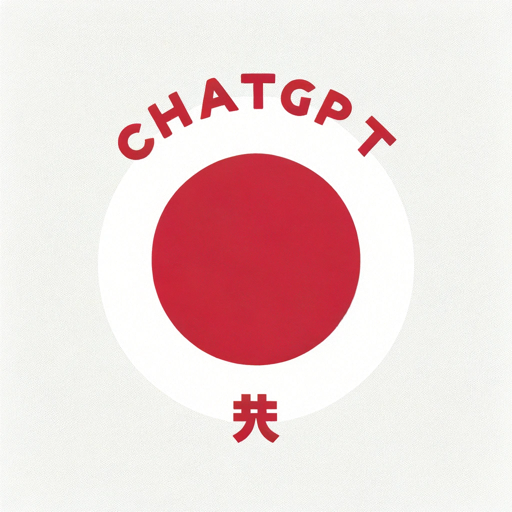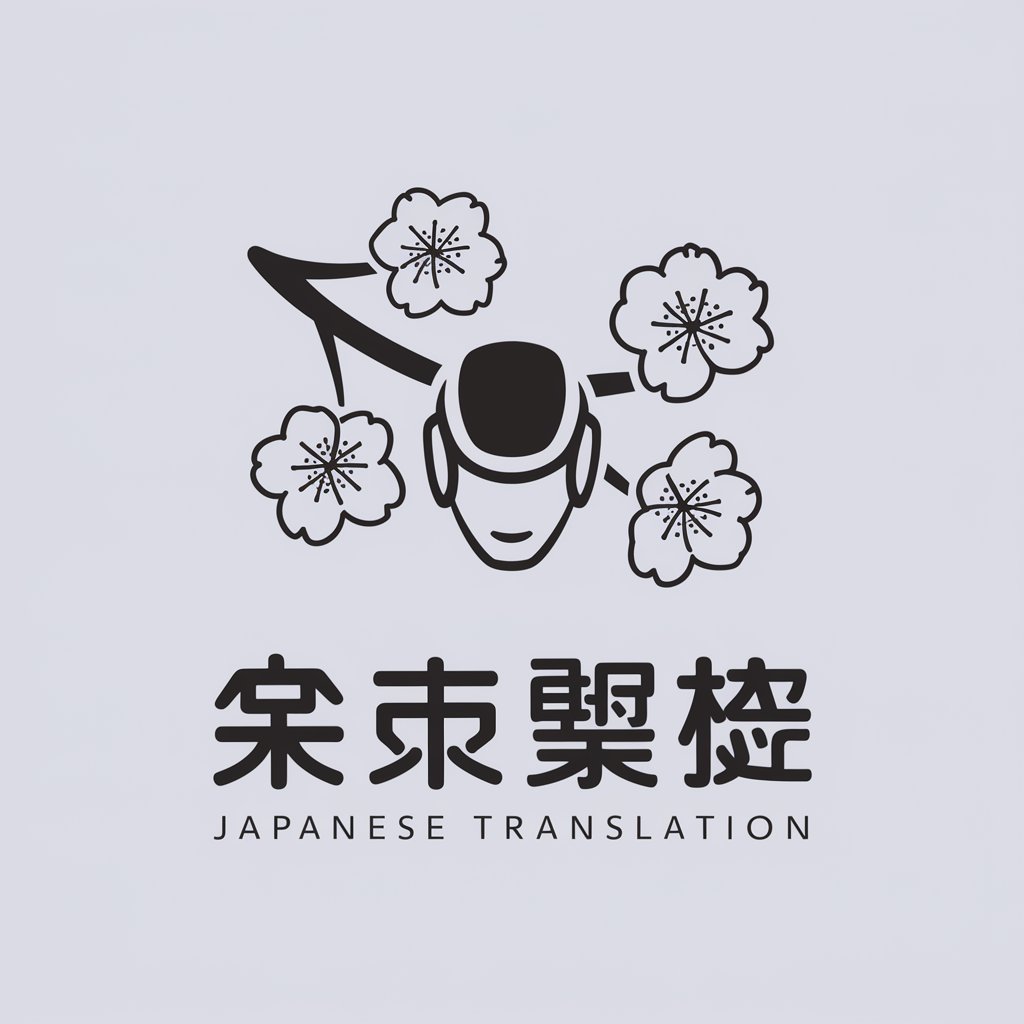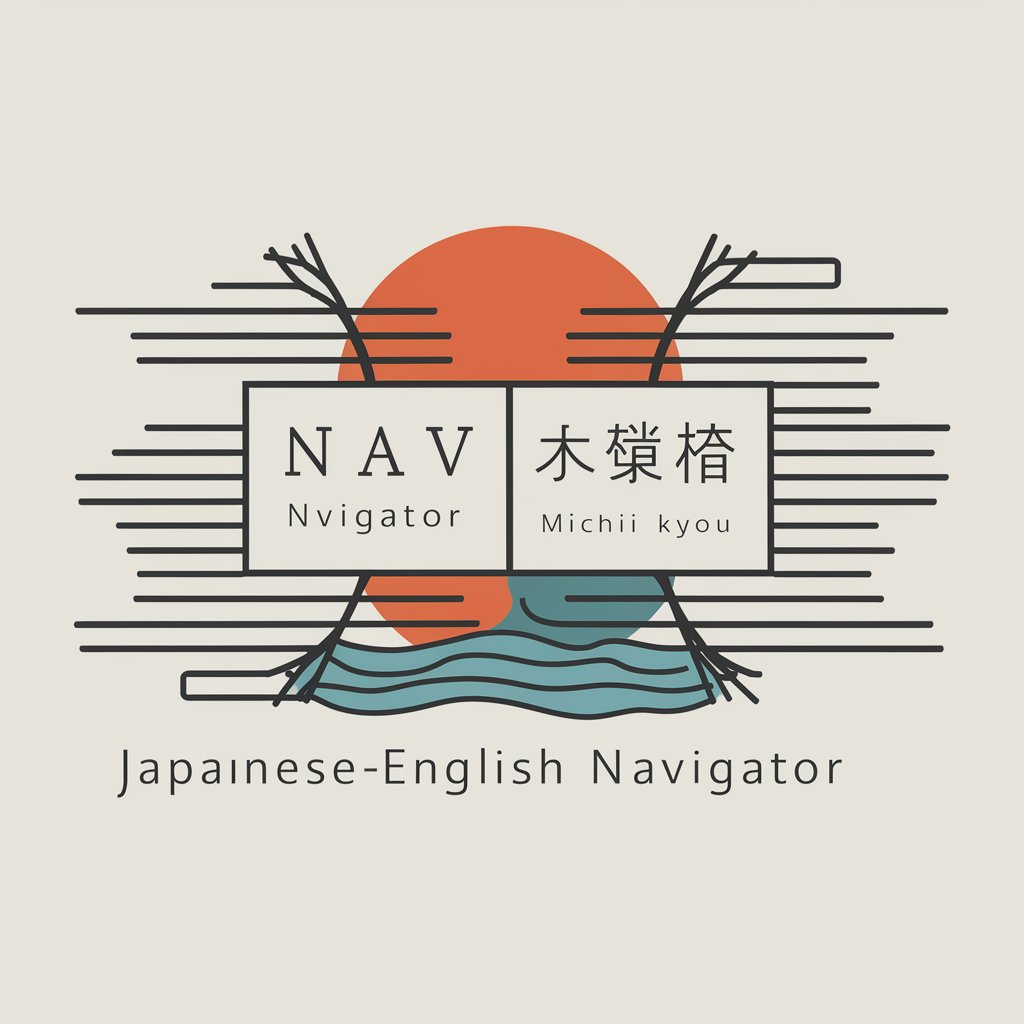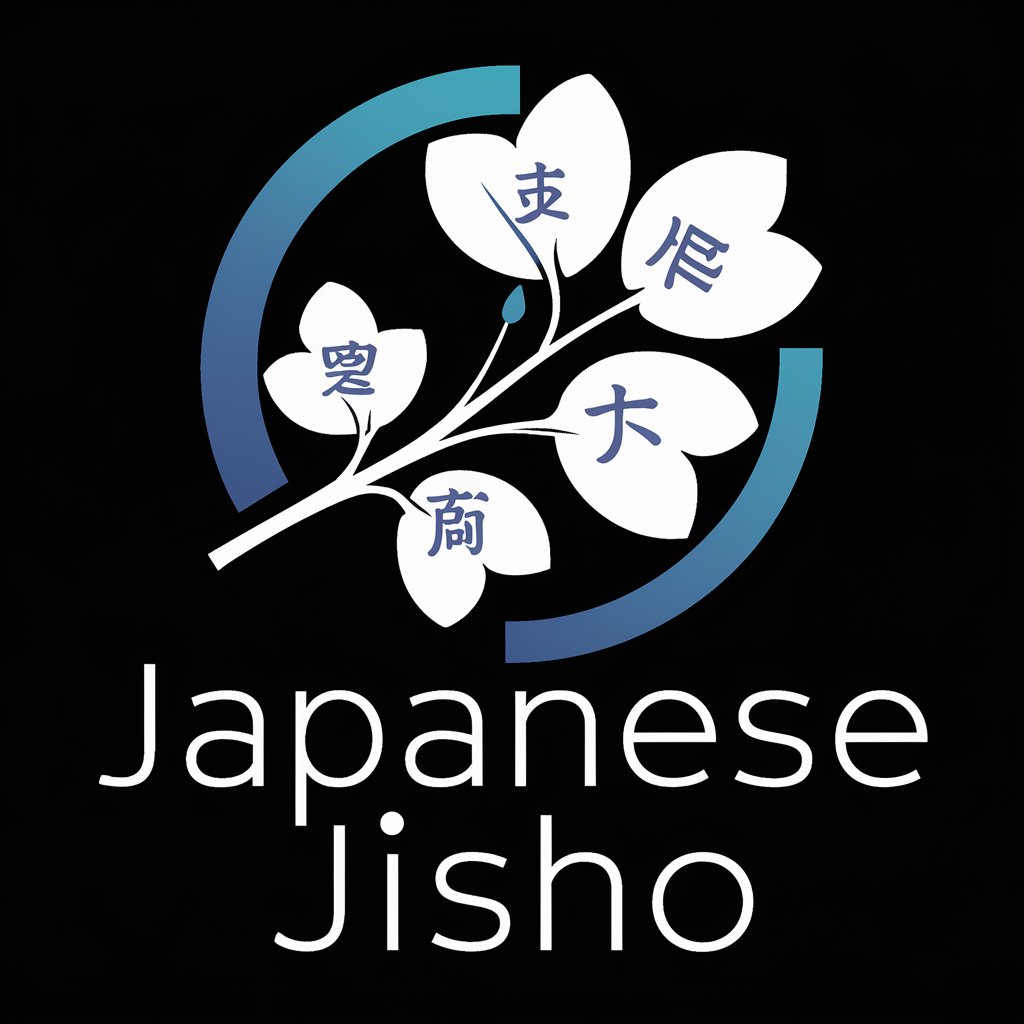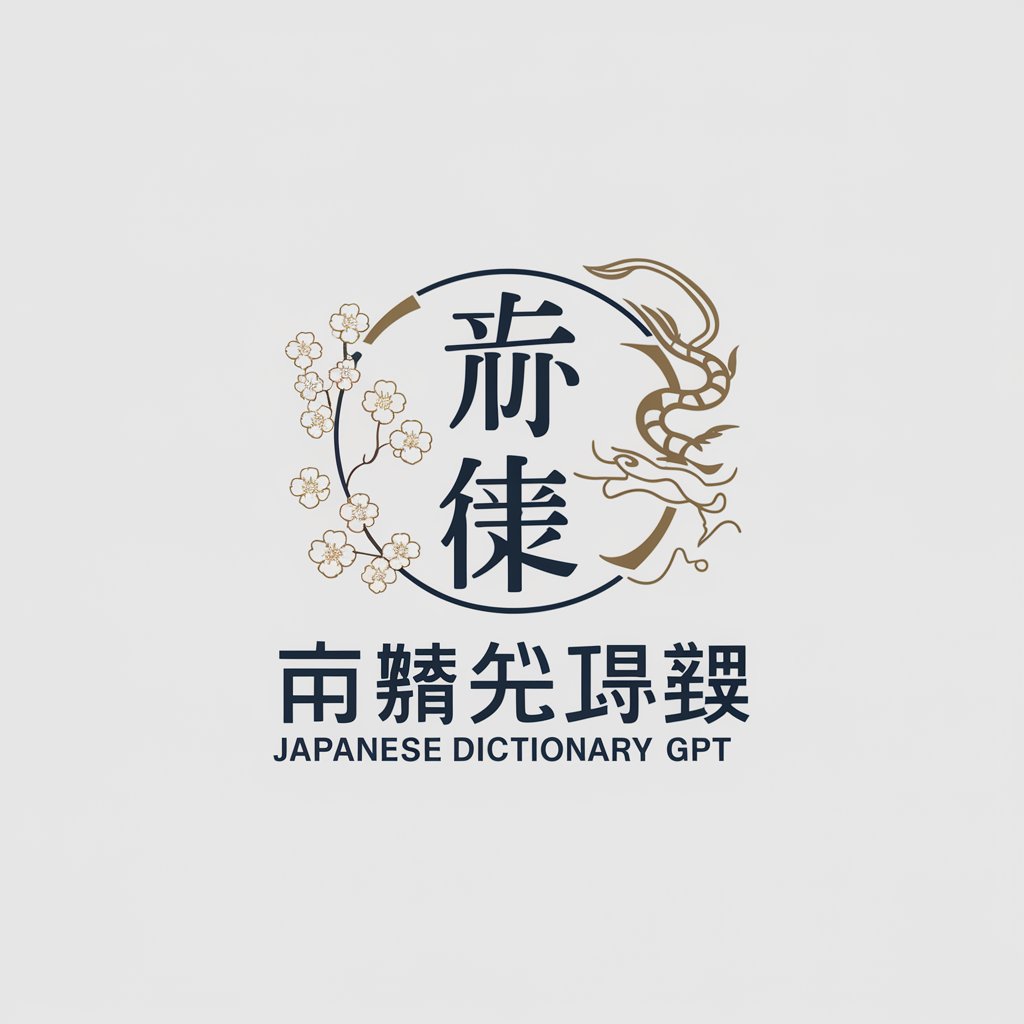
日本語辞書 | Nihongo Jisho | Japanese Dictionary - Japanese Verb and Adjective Mastery

Welcome! How can I assist with your Japanese language learning today?
AI-powered insights into Japanese grammar
Explain the different conjugations of the verb
Provide an example sentence using the adjective
How do you say 'to eat' in Japanese and conjugate it in past tense?
What is the polite form of the verb
Get Embed Code
Overview of 日本語辞書 | Nihongo Jisho | Japanese Dictionary
日本語辞書 | Nihongo Jisho | Japanese Dictionary is designed to serve as a comprehensive resource for learning and understanding the Japanese language, with a special focus on verbs and adjectives. It is structured to assist users in navigating the complexities of Japanese grammar through detailed conjugation tables, meanings, and contextual usage examples. The primary aim is to support learners at varying levels of proficiency by providing accurate, concise, and easily understandable information on Japanese vocabulary and grammar. An example scenario illustrating its utility could be a learner encountering the verb '食べる' (taberu - to eat) and seeking to understand its various forms, such as the polite form '食べます' (tabemasu), the negative form '食べない' (tabenai), and the past tense '食べた' (tabeta), alongside practical examples of each in use. Powered by ChatGPT-4o。

Core Functions of Nihongo Jisho
Verb Conjugation
Example
For the verb '行く' (iku - to go), Nihongo Jisho provides forms like '行きます' (ikimasu - will go), '行かない' (ikanai - do not go), and '行った' (itta - went), with examples such as '明日、図書館に行きます。' (Ashita, toshokan ni ikimasu. - I will go to the library tomorrow.)
Scenario
Useful for learners practicing verb usage in different tenses and polite forms.
Adjective Conjugation
Example
For the adjective '高い' (takai - high/expensive), it offers variations like '高くない' (takakunai - not high/expensive), '高かった' (takakatta - was high/expensive), with usage in sentences like 'この靴は高かったです。' (Kono kutsu wa takakatta desu. - These shoes were expensive.)
Scenario
Helps learners to correctly modify adjectives for negative, past, and polite expressions.
Contextual Usage Examples
Example
Explains the use of the expression '頑張る' (ganbaru - to do one's best) through sentences like '試験に合格するために頑張ります。' (Shiken ni goukaku suru tame ni ganbarimasu. - I will do my best to pass the exam.)
Scenario
Assists in understanding how words and phrases are used in real-life contexts.
Target Users of Nihongo Jisho
Language Learners
Individuals at any stage of learning Japanese, from beginners grappling with basic vocabulary to advanced learners refining their understanding of complex grammatical structures, will find the dictionary's detailed explanations and examples invaluable for enhancing their language skills.
Educators and Tutors
Japanese language teachers and tutors can utilize Nihongo Jisho as a teaching aid to prepare lesson content, create exercises, or explain intricate grammar points and vocabulary usage to students.
Translators and Linguists
Professionals engaged in translation work or linguistic research may benefit from the detailed analysis of verb and adjective forms, as well as the practical usage examples, to ensure accurate and nuanced translations or to study the Japanese language's structure and use.

How to Use Nihongo Jisho
1
Start with a free trial at yeschat.ai, no signup or ChatGPT Plus required.
2
Type in the Japanese word (verb or adjective) you wish to learn about.
3
Specify if you are looking for conjugations, meanings, or usage examples.
4
Use the provided information to enhance your Japanese language skills, integrating it into your studies or work.
5
For advanced queries, specify the context or sentence structure you are aiming for to receive more targeted assistance.
Try other advanced and practical GPTs
Mineral Water Maven
Discover the essence of mineral waters.

God's Python Selenium Automation
Empower Your Web Automation with AI

SnapStyle
Empowering your style with AI

Grant Genius
Empowering Your Grant Writing with AI

プロダクト開発リスク仮説
AI-powered Risk Hypothesis for Product Development

Monologue Master
Empowering Your Performances with AI

Backlink Inserter
Streamline SEO with AI-driven backlinks

مساعد باوربوينت
Elevate Your Slides with AI-Powered Design Insights

" Advogado Pessoal "
AI-powered Brazilian legal guidance

Turtle Soup Riddle Game
Solve Mysteries with AI-Powered Riddles

Decision Maker
Navigate decisions with AI clarity

Ecommerce Store Expert
Streamlining Your Shopify Success

Frequently Asked Questions about Nihongo Jisho
How can Nihongo Jisho help improve my Japanese verb conjugation skills?
Nihongo Jisho provides detailed conjugation tables for Japanese verbs, including various forms such as polite, negative, past, and potential, among others. By studying these tables, you can understand how to correctly conjugate verbs in different contexts.
Does Nihongo Jisho offer examples of adjective usage in sentences?
Yes, it offers examples of sentences using adjectives in both their positive and negative forms, across formal and informal contexts. This helps in understanding the practical application of adjectives in conversation and writing.
Can I use Nihongo Jisho for JLPT preparation?
Absolutely. Nihongo Jisho covers a wide range of vocabulary and grammar points across all JLPT levels, making it a valuable resource for test preparation.
Is Nihongo Jisho suitable for beginners?
Yes, it is designed to support learners at all levels, with clear explanations and examples that make it accessible for beginners.
How does Nihongo Jisho differ from other Japanese dictionaries?
Nihongo Jisho is AI-powered, offering more nuanced explanations and a wider variety of usage examples than traditional dictionaries. It also provides specific conjugations and context-based usage, tailored to the user's needs.
